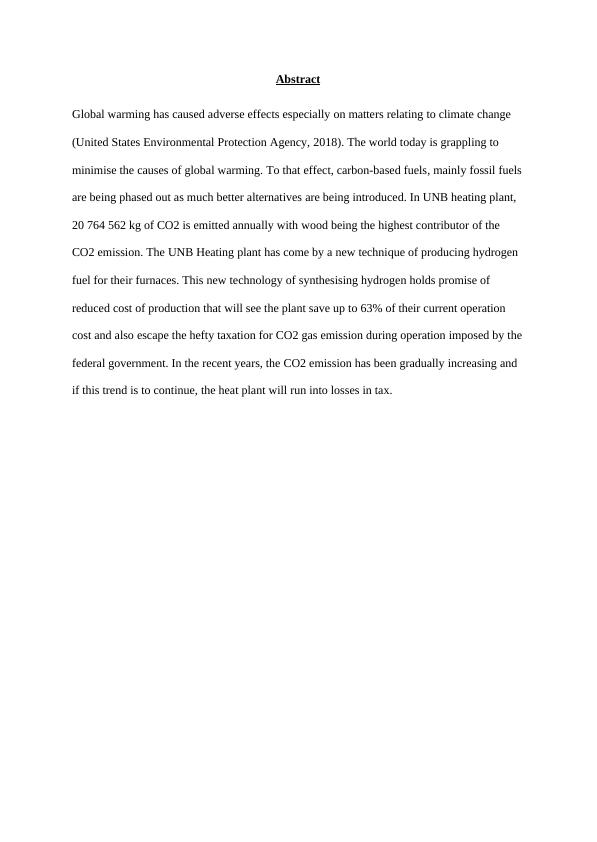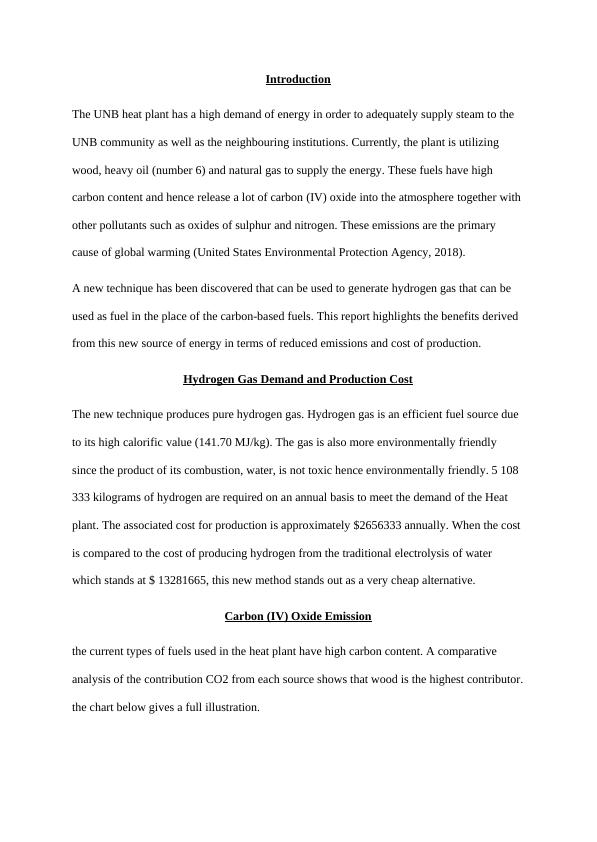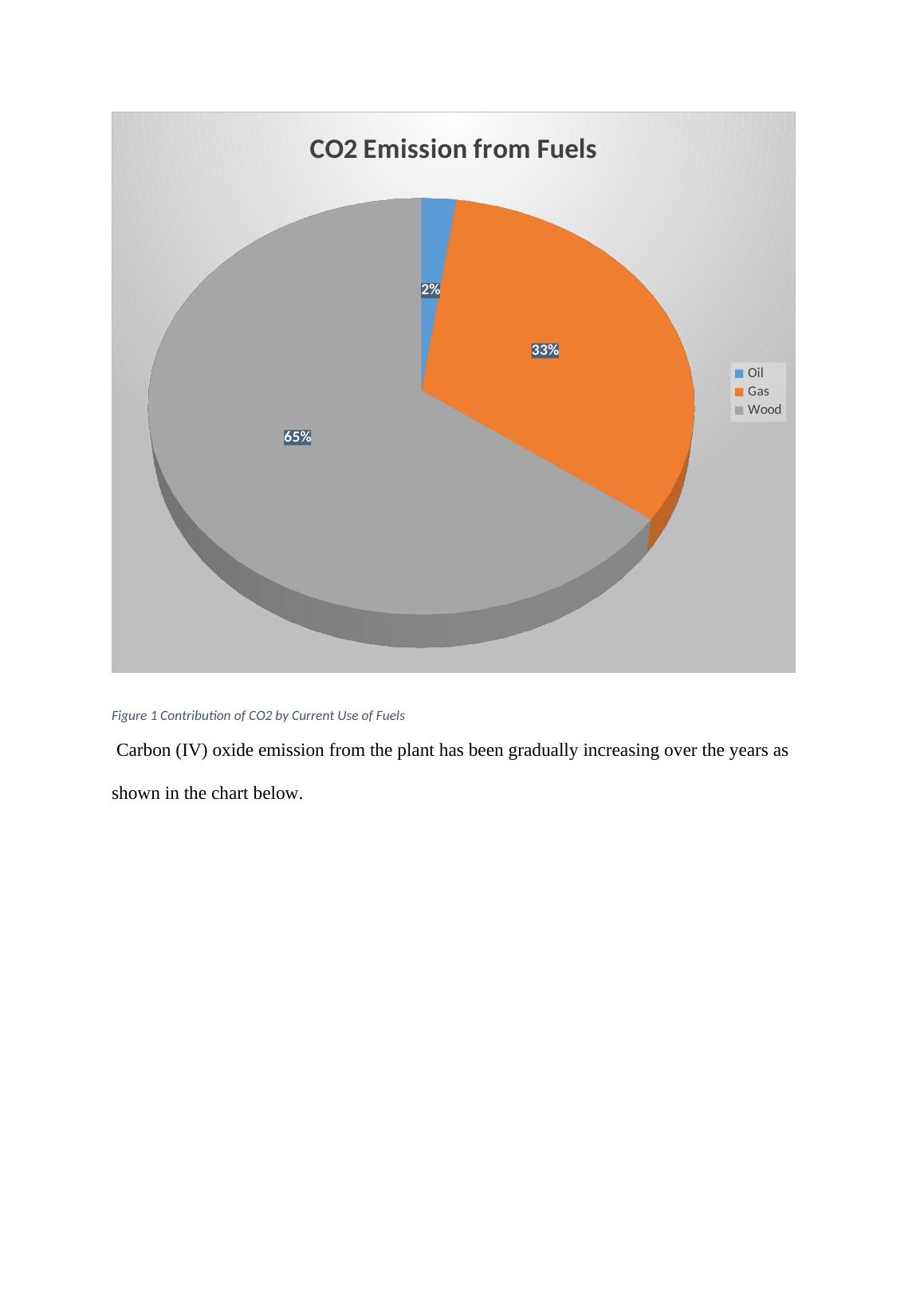Reducing CO2 Emissions with Hydrogen Fuel in UNB Heating Plant
Added on 2023-01-13
9 Pages1263 Words65 Views
End of preview
Want to access all the pages? Upload your documents or become a member.
Techno-economic assessment for different hydrogen production and purification technologies
|37
|8818
|369
Assignment on Carbon Tax
|6
|981
|135
Study On Water Scarcity & Large Power-cut Issue In UK
|9
|2354
|70
Exhaust Emission Fuel Assesment
|5
|1197
|20
Biofuels and Global Warming: A Study on Biofuel Consumption and its Impact
|15
|2844
|24
Greenhouse Gases in Water Production
|8
|2155
|432


